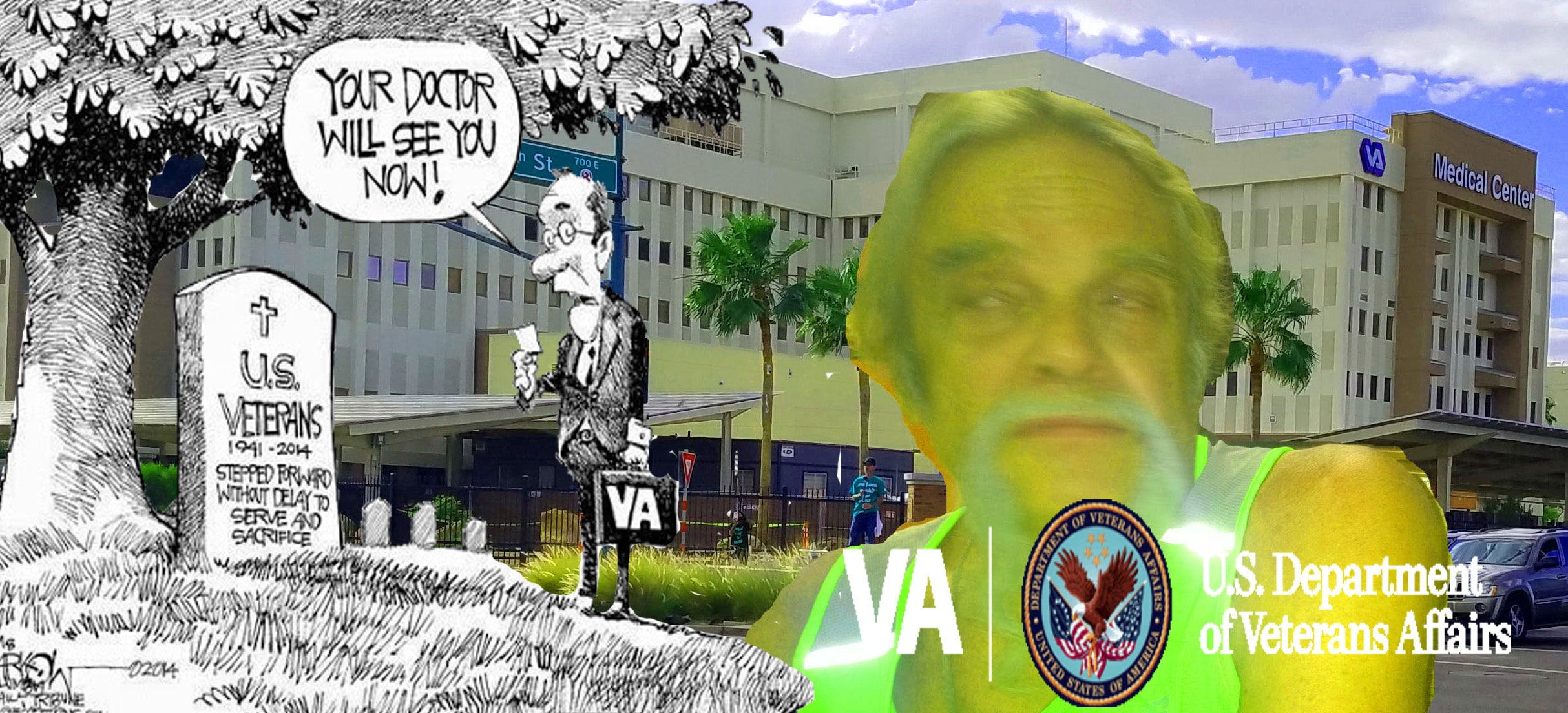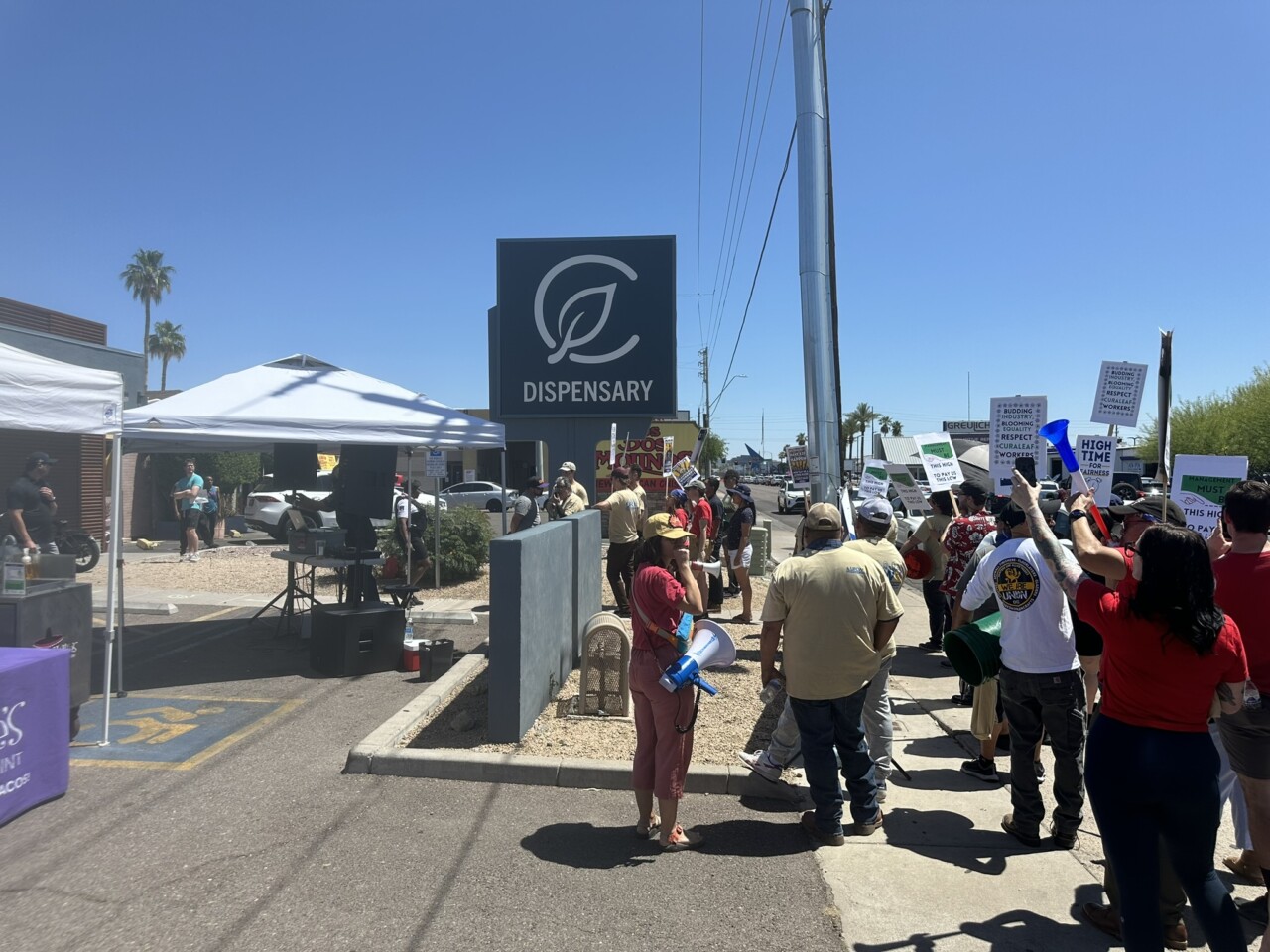by Elizabeth Dennehy
Gerald DeYoung spent 6 years as an aircraft mechanic in the Army during the Vietnam era. Friends call him Jerry. A 65-year-old Army Veteran living in the Phoenix area, Jerry has found himself in the position of having to rely heavily on the Veterans Administration due to financial difficulties, the high cost of independent civilian care, and his inability to work because of injuries sustained during his time in the military. Due to a myriad of physical, mental, and psychological maladies that plague his ability to function from day to day and diminish his quality of life, Jerry has been in near constant pain and suffering for several years, with little to no help or relief from the VA. His story, while unique to him, is a story echoed by veterans across the United States.
6 years ago, Jerry was in a significant motorcycle accident, and through the VA he had reparative surgery on his right arm. He received a titanium bone replacement in his elbow. Since the operation, however, he has had problems with his left arm. On his left hand, he has lesions, his nails have started to peel and fall off, and severe site pain and tenderness. Now the combination of PTSD, brain damage, neuropathy in his right arm, and surgery on his left arm have led to sleep deprivation.
Jerry has been to several doctors at the VA regarding these sores and his deteriorating fingernails. To his frustration, he has been blatantly ignored or placated about his growing concern over recent symptoms that have manifested on his left hand. His questions have been met with few cohesive answers. Jerry asked for a metal sensitivity test, to determine if there is a metal in the titanium replacement that he could be allergic to. Interestingly, his mother had two knee replacements several years ago, and both her feet have the exact symptoms as her son’s hand. Loss of toenails, and lesions on her feet.
The VA has denied his request for the metal test. Metal-LTT is a blood test that checks for sensitivities to metals that are in titanium-alloy replacements. The most common trace metals in titanium are Nickel, Cobalt, and Chromium. 10-15 percent of the population are allergic, or sensitive to at least one of these metals, with Nickel being the most common. Common side effects of metal sensitivities in people with titanium implants can include rashes, neuropathy, site pain, lesions, etc. The Metal-LTT blood test isolates the T cells in the blood sample and exposes them to the different metals individually, to determine a reaction from the T cells on the metal samples.
Though it is a simple test and should be a requirement pre-surgery, as so much of the population have metal sensitivities, this is not a test the VA offers. What little relief that Jerry has found has been through naturopathic avenues, such as Cannabis, acupuncture, change of diet. Thanks mostly to, Sue DeYoung, his wife of almost 40 years. She can attest to his frustration and almost complete loss of hope in getting help. His disillusionment and fear of the mishandling of his care have left him afraid for his potential loss of use of his hand, and even his life. Jerry is now afraid of his care being handled by the VA. Jerry stated, “They’ve (the VA) have been wronging me for years…I’m tired of it, and now I’m afraid I’m going to lose the loss of my hands, and I very much value the use of my hands…”
In the meantime, Jerry has found solace in his art. He paints and works with wood. It has helped him with his PTSD, and his mental stability when the psychotropics they gave failed him. The new symptoms of his left hand have impeded on his ability to create and have led to a definite decline in his mental state. Jerry blames the VA’s negligence when it comes to listening to this Veteran. Like so many others before and after him, Jerry has found his faith the VA wavering. They have all but lost hope in the institution that was created for the specific purpose of caring for those who have served their country.
While the story of every veteran is unique to that person, one of the main threads that seem to be woven to become a part of every individual story is the frustration in the VA healthcare system. Jerry continues his care through the VA, but he fears for himself and all the other brave vets he has encountered. When asked how they feel about the VA, there is a general sense that the VA not really caring about our nation’s veterans. The stories may be different, the injuries, the anger, however, the frustration, and feelings of hopelessness have reverberated in every Veteran’s story.
For now, Jerry and Sue DeYoung continue their fight for answers about his left arm. He holds onto a little hope that someone will listen to his story and be moved to help him or another veteran that might be in worse shape than him. It is his hope that this article will bring to light more of mishandling of veterans’ care will be dealt with, and lives might be saved.
If you know a Veteran going through similar struggles, let AZ-NORML know. If you know a way to help Jerry and Sue, again let AZ-NORML know. Elizabeth Dennehy is serving as our veterans’ outreach contact person. She can be reached by calling the AZ-NORML hotline 928-234-5633 or by email at normlazchapter@gmail.com.
 — Elizabeth Dennehy is an Iraq War-era veteran who served in Europe, an avid bike rider, a vegan and AZ-NORML’s veterans’ outreach contact person.
— Elizabeth Dennehy is an Iraq War-era veteran who served in Europe, an avid bike rider, a vegan and AZ-NORML’s veterans’ outreach contact person.








Leave A Comment
You must be logged in to post a comment.